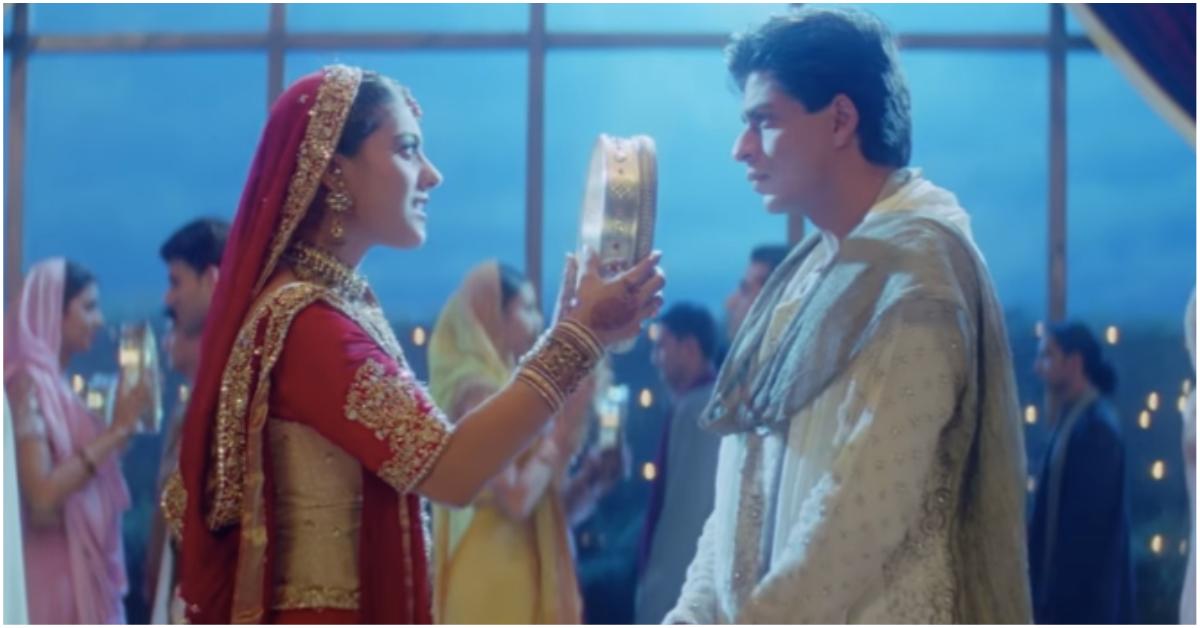My knowledge of Karva Chauth dates back to some six years when I moved to Delhi and the ladies at my then office sat me through the joys of fasting for their husband’s health. They were happy, willing veterans of the annual ritual, and mostly visiting their mothers- and sisters-in-law on the day of the ceremony. Back home in Kolkata, I had encountered its distant counterparts, the Jamai Sashthi and Shivratri; the former, a Bengali ritual where the mother of the bride celebrates the groom’s mere existence by cooking a royal feast for the guy, the latter, a day-long fast observed by unmarried young women for a customised husband whose temperament and physique is like that of Lord Shiva. Whatever floats your boat, right?
But as time has flown, a lot really has changed for women in Indian society. We’ve given women’s empowerment a little more legroom, we’ve used the digital revolution as a weapon to spearhead a #MeToo movement, and we’ve supported fellow women entrepreneurs and activists when they built platforms for women to speak their mind.
But dig deeper, and you’ll find that the storyline beyond the digital and workspace, unfortunately, hasn’t changed much. Women around the country, especially in the north and western parts, still take a customary day off work to pray for their husband’s well-being—although they might have to depend on their boss’s approval for their own sick leaves—and fast between sunrise and sunset in glorious anticipation of a full moon to conclude the event. If they do turn up at work, they receive praise for donning the proverbial hat of a woman who ‘can have it all’—a career and the image of an adarshiya Bharatiya Nari.

Take a moment to acknowledge the men in question and you’ll see a little progress too. There are those that have kept a fast in love and support of their wives, and also the minority of men who’ve argued with their mothers about the regressive nature of Karva Chauth and protected their wives from familial obligations. And then there are those who still dig into their lunchboxes at work, oblivious to the pain and effort that their wives are putting into the kitchen back home. It’s ‘a woman’s thing’, they’ll say, ‘not it’s not something men need to do,’ or that they ‘can’t be at work and keep a fast at the same time. At least the wife can rest at home.’ Mind you, that’s the majority. In spite of the ache din, are we still going around the same circle?
Gender Expectation In the Name of Religion

What’s upsetting, is that even today, women are expected to dedicate their lives into finding the right man (en route Sola Somvaar and Mahashivratri), then making sure the husband lives a healthy life, and god forbid the woman has children, there are some more fasts bunged in (Ahohi that follows a week after Karva Chauth), just so the kids are insured too. Gender roles are so predefined as soon as you hit puberty that you are forced into observing rituals out of fear and respect for the elders. No rebuttals to this madness are expected, and if you dare, you must face the flak within the house and outside, because hell, everybody is entitled to an opinion and women still can’t stand up for one another.
The fundamental question is: Is it that convenient to call upon the woman to protect the family through archaic rituals, but put her right back in the cage when she seeks empowerment?
Karva Chauth, A One-Way Street

When was the last time you heard of a man fasting for the health of his wife? You know the answer. Karva Chauth, with its bandwagon of other rituals, is a one-way street where women must constantly seek approval from the patriarchy in order to maintain their dignity. Whether the husband is a wife-beater, a womanizer, an alcoholic, or simply a disinterested family guy, on Karva Chauth, the woman must fall in line or fear reprisal. Alas, the wisdom and values that are passed on from the old to the young are smeared in male chauvinism, and the folklore of Veervati (the woman who observed a fast to bring her husband back from Yamraj) lives beyond its time, appreciated and accepted by the mass. In return for the unscientific vraats, the day-long cooking, dressing up and looking pretty, nothing seems to be enough, until you see your husband’s face through the sifter and…
…touch his feet so he can bless you. Well done, you! The validity of your dignity card has just been recharged till the date of the next vraat!
And you’re in a circle, just like your mother, your grandma, and the rest of your family was.
The Only Way Out

Rules and customs entrenched in a medieval mindset can take up a while to clean—but just look how a long hard battle won us the battle against Section 377! The only way out? Questioning the objective and necessity of a tradition and hoping that one day, just like the #MeToo movement, modern Indian women may choose to take it upon themselves to drive the change and say, “Times Up, Karva Chauth!”
Read our story on what you can do instead of fasting on Karva Chauth to make sure your husband lives longer here.
Image Courtesy: YouTube
AWESOME NEWS! POPxo SHOP is now Open! Get 25% off on all the super fun mugs, phone covers, cushions, laptop sleeves, and more! Use coupon code POPXOFIRST. Online shopping for women never looked better!



